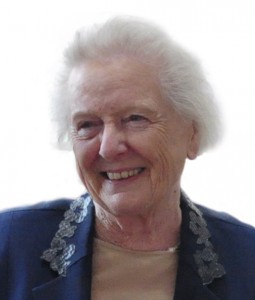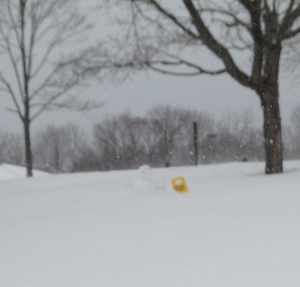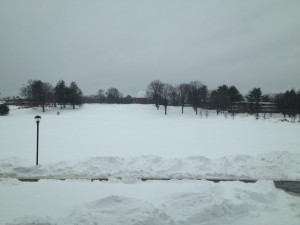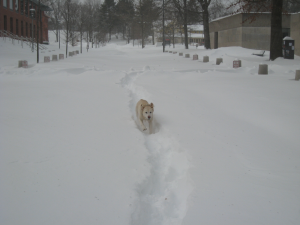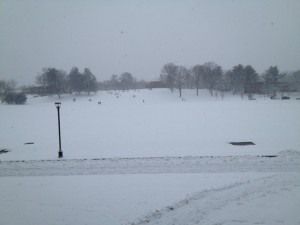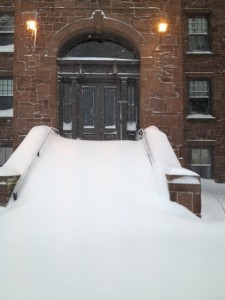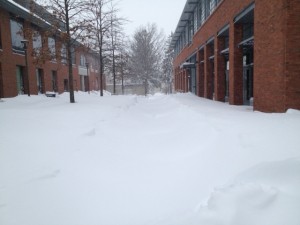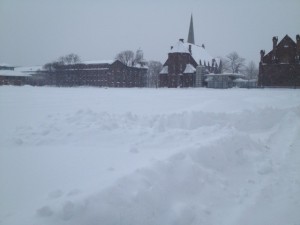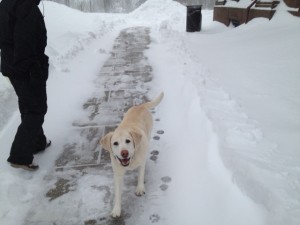In my previous two posts, I’ve written about obstacles to and opportunities for inclusion on campus, focusing first on race and then on gender. In this third post on inclusion, I’d like briefly to consider obstacles and opportunities we face in regard to to religious belief and political conviction.
When I began my presidency, I came upon some lame poll announcing that Wes was one of the best universities for atheists in the country. This was meant to suggest that although one might study religion at Wesleyan, one wouldn’t have to get to know and work with people of strong religious faith. Not long after reading this, I met with a group of students and faculty from different faiths, many of whom were working on projects together. Not yet being entirely familiar with the particular culture of our university, I expressed surprise that people whose specific theological tenets were in conflict could join forces so readily. What a mistake on my part! Students and professors pointed out to me the long history of inter-faith cooperation at Wesleyan (and other campuses) and the general recognition here of the importance of diverse cultural traditions as springboards for education and civic engagement.
Since that time I’ve met with various groups here organized around faith, religion and spiritual practices. These groups often join together, or with secular organizations with whom they share similar interests – from environmental concerns to health care. The office of Religious and Spiritual Life offers support and guidance, as do many staff and faculty members, to students who want to integrate religion into their lives on campus. These students tend to thrive at Wesleyan insofar as they refuse dogmatism and are open to the heterogeneity of belief in the rest of the community.
Openness to heterogeneity of religious belief is essential for all those who really seek to learn from others. Wesleyan remains a great place to be an atheist, but that’s in large part because one doesn’t get to interact only with secular people.
Another label that frequently gets applied to Wesleyan (and, truth be told, to almost all other highly selective schools) is that we are too homogeneously “liberal” – by which is meant the faculty and students are either too far to the left or too politically correct. There is much evidence that shows the leftward tilt of higher education generally. Most professors are somewhere on the left of the political spectrum in the United States, and that seems to have been the case at least since the 1940s. One general explanation for this is that since the late 19th century universities have increasingly become places of inquiry rather than reverence, and this has attracted people open to changing the status quo. Whatever the reason, surveys indicate that professors at highly selective schools these days rarely vote for conservative candidates.
But it would be a mistake to think that on our campus everyone supports the same kind of politics. Some of the most interesting, thoughtful and energetic students I’ve met over the last seven years have identified themselves as conservatives. (Some of them also have thought they were contributing to “keeping Wesleyan weird.”) They have been challenging received opinion at Wesleyan, and as an educational institution we must ensure that we make room for those challenges. Surveys show that faculty recognize this and see the need for greater political diversity in their own ranks.
Rejection of political dogmatism and openness to the heterogeneity of political belief are essential for all those who really seek to learn from others. Wesleyan should be a great place to be a conservative, as it has been a great place to be a radical, precisely because you interact with people who may not share your assumptions.
One of the basic elements of campus culture should be to help students cultivate the willingness and ability to learn from material and people they might otherwise reject out of hand or ignore. Undoubtedly, this will often surprise students and sometimes upset them. When someone says “the professor, or the material, made me uncomfortable,” we should not immediately see this as a problem that needs fixing. Being made uncomfortable is a necessary component of a broad, open-ended education devoted to increasing one’s capacities. Of course, a climate of respect and non-violence is also crucial to learning, but if we truly value diversity, we should expect at some points to be made uncomfortable – because a real education forces us to re-examine our commitments, our beliefs. Re-examining, of course, does not always mean changing; sometimes those commitments and beliefs are reaffirmed in deeper ways.
Atheists and religious people, conservatives and liberals should all be engaged in building a culture of generative discomfort. Creating a campus culture that values the desire to learn from unexpected and uncomfortable sources in a climate of support and respect is a key aspect of what it means to pursue our mission: “to build a diverse, energetic community of students, faculty, and staff who think critically and creatively and who value independence of mind and generosity of spirit.”



